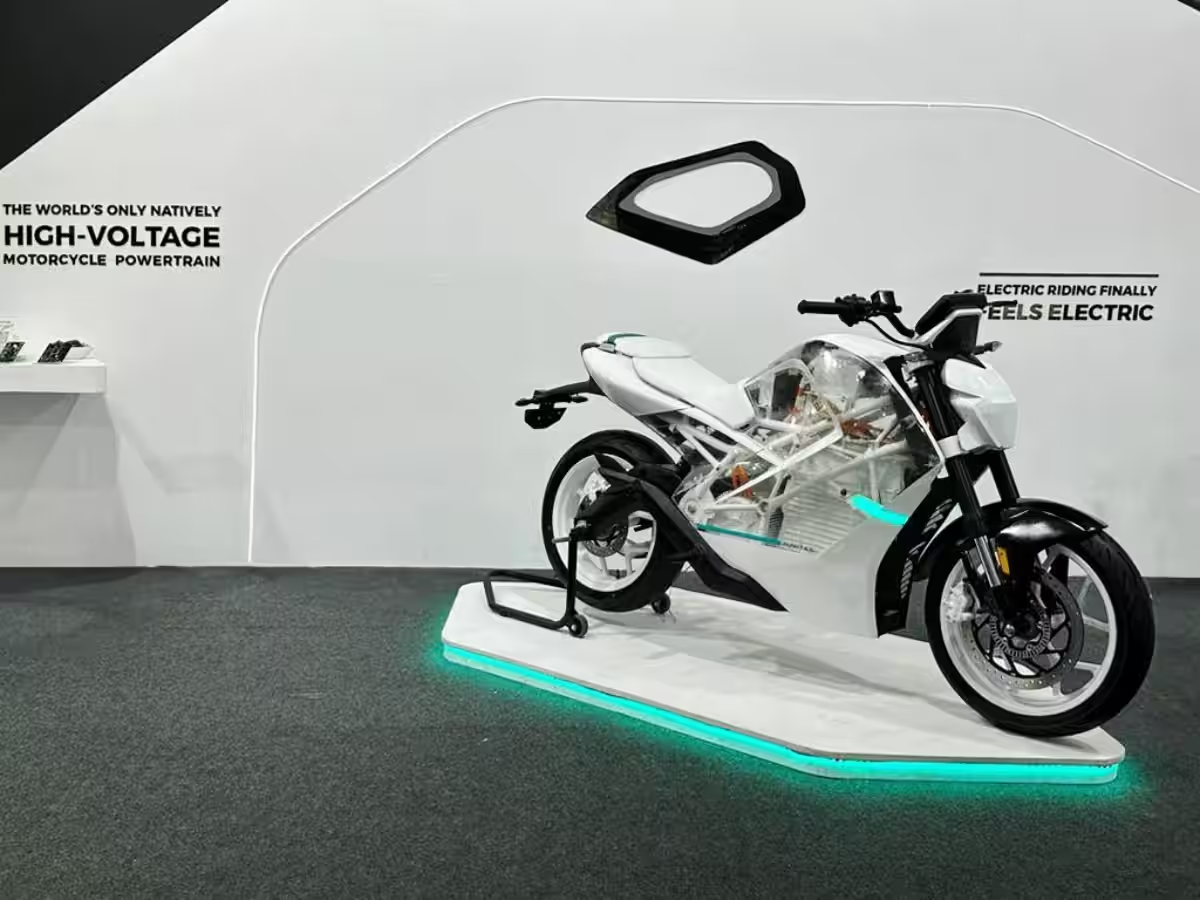Raptee is a full-stack two-wheeler EV startup with their flagship product highly tech-enabled and IoT-centred. The team began operations out of Chennai in 2019 with a mission to democratise electric mobility in India. They are crafting a two-wheeler EV that is more of an augmented machine which is intelligent, intuitive and safe with features like throttle mapping, blind-spot detection, and Bluetooth connectivity. So far, Raptee has over 31 technological patents in its name.

Rashi Bajpai, Sub-Editor at ELE Times spoke with Mr Dinesh Arjun, CEO and Co-founder at Raptee on various aspects of EV with a prime focus on the Indian market.
This is an excerpt from the conversation.
- Can you throw some light on the go-to features/ major USP of Raptee’s electric motorcycle?
Our bikes come with an onboard charger that plays an essential role in bidirectional charging modes thus making the riding experience hassle-free. Additionally, we stand out as the only electric two-wheeler company in India to leverage the ubiquitous CCS2 charging standard. This compatibility grants you access to the extensive public charging network, allowing you to top up your bike from 0 to 80% in a mere 45 minutes.
- What core technologies and concepts does the team Raptee work on? Please highlight your key expertise and core competencies.
As the sole electric two-wheeler (e2W) utilizing a high-voltage drivetrain, we deliver superior performance surpassing any internal combustion engine (ICE) counterparts. The seamless integration of VCU and cloud computing not only enhances rider experience with smoother acceleration and improved handling but also offers practical benefits like efficient trip planning through real-time battery status updates, showcasing Raptee’s commitment to innovation and practical functionality on the road.
- As India moves towards self-reliance in the area of information and technology, a wave of innovations and ideas has taken over the nation. How well is Raptee prepared to pursue development in the EV sector under the “Make in India” policy?
Raptee substantiates its alignment with the “Make in India” policy through its complete in-house design and development of all components. This comprehensive approach not only ensures technological sovereignty but also fosters a culture of innovation and expertise within the domestic industry. Additionally, Raptee’s establishment of a complete supply chain ecosystem from scratch addresses a critical gap in the market, particularly concerning high-voltage technology. This initiative not only reduces dependency on imports but also enhances the resilience and competitiveness of India’s EV sector.
- What is your view on EV battery swapping booths and can its implementation help India come closer to sustainable electric mobility?
As battery technology evolves, the range of EVs is steadily increasing, reducing the need for frequent charging. This improvement diminishes the perceived advantage of battery swapping, which is often promoted as a quick solution for limited-range EVs. As batteries become more energy-dense and charging times decrease, charging stations become more efficient and comparable in terms of convenience.
- India’s electric two-wheeler (E2W) sector is expected to cross the one million mark in 2024-what are the factors that will influence the market to reach the mark?
India’s E2W market is on an electric revolution, with sales expected to breach the one-million mark in 2024. This surge is driven by a customer-centric approach. Gone are the days of limited choices. Manufacturers are offering diverse options, from high-performance motorcycles to practical everyday rides, catering to every rider’s needs. Range anxiety is fading too, with advancements in battery technology and a rapidly expanding charging network. Additionally, robust customer support with readily available service and informative resources empowers riders, building trust and confidence in E2Ws. This focus on customer satisfaction, coupled with innovation and infrastructure development, is paving the way for a million E2Ws and a sustainable transportation future for India
- How can better implementation of the charging infrastructure accelerate the sales of EVs?
A well-developed charging infrastructure plays a pivotal role in accelerating electric vehicle (EV) sales by addressing critical consumer concerns. Firstly, it alleviates the fear of “range anxiety” among potential buyers by ensuring a widespread network of charging stations along highways and in urban areas, thereby assuring drivers they can recharge conveniently during their journeys. Secondly, the availability of fast-charging stations, such as those utilizing the CCS2 standard, significantly reduces charging times, making EVs more competitive with traditional gasoline vehicles. This not only enables quicker trips but also enhances overall convenience by minimizing wait times at charging stations. Moreover, a robust charging infrastructure sends a powerful message to the public, signaling that EVs are a practical and supported transportation choice. This reassurance can sway hesitant consumers, ultimately driving increased EV adoption.
- Tell us about Raptee’s goals and vision for the next decade.
Raptee’s vision is nothing less than a revolution in personal mobility. We are committed to accelerating the shift towards safe, smart, and sustainable transportation solutions, making them accessible to everyone. Fueled by a deep-tech core, we’re pioneering innovative technologies like HV drivetrains to achieve this ambitious goal.
Our focus isn’t limited to electric vehicles. We see ourselves as architects of the future of mobility, constantly exploring new product landscapes based on customer preferences and inventing disruptive technologies across different segments.
By the next decade, Raptee aspires to be a global leader in personal mobility, with a significant market share. This leadership will be built on the foundation of our unwavering commitment to safety, sustainability, and cutting-edge technological innovation.

